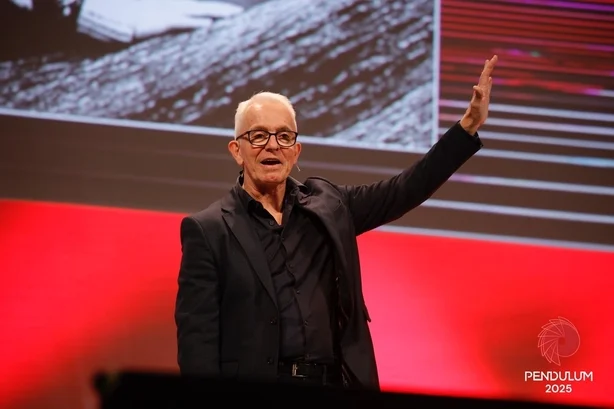Emotional intelligence "surprised everyone", said Dr Martyn Newman.
Speaking at the Pendulum Summit in Dublin this week, the Leadership & Emotional Intelligence Expert said that when the concept emerged 20 years ago, many thought it would be a passing "American fad".
"But what we've really come to understand is that emotions drive most of our human behaviour. They certainly drive our thought processes, there are emotions that are a very primitive response by which we engage the world."

It makes sense when you think about it: these emotions arise in our bodies, pass through our intelligence and to our minds, where our brains make decisions on how to behave "based on judgements of value".
"Many people feel like their behaviours are stuck or they have very little insight into what might be driving that behaviour", Newman said. Rather than having a set pattern of being, understanding our emotions and how the mind reacts to them can help us make changes to our behaviours, if we want to.
To understand it you need two things, he said: "Insight into what is the emotional experience that might be driving that behaviour and then two, can you develop some tactics, some strategies, some stepping stones where you can deploy behaviour that's more aligned with your authentic values that'll acheive the results that you're looking to achieve."
Connecting with our emotions sounds easy, but it's never been more challenging for many of us, something that Newman attributed to the vast amounts of time we're spending online. He explained that experts are seeing an "increased sense of depersonalisation" due to screentime.
"We're spending more and more time on our own, more and more time interacting with mass audiences rather than really genuinely connecting emotionally with people, and I think this is really having a huge impact on a generation's mental health."
The apps that we spend our hours on are driven by algorithms that are designed to attract attention and "become addictive" because they offer immediate feedback. It raises concerns about how young people can come to understand themselves, their emotions and their reactions.

"How do young people develop their identities today? We used to develop our identity by looking into the mirrors, the faces of people we know and trust and develop accurate views of our values and who we are. These days, we're gazing into a screen and receiving feedback from thousands of anonymous people."
In this void of self aware, Newman said that there's an "acceptable narcissism" emerging.
"It used to be that if you talked about yourself, if you were too public celebrating your achievements it was seen as inappropriate grandstanding, whereas in the current environment, in this particular modality, celebrating your success and exaggerating your achievements is to be celebrated."
Relationships and other people are our way back to connection with ourselves, he said, adding that there are two areas you need to focus on: the need to belong and interpersonal connection with others. "There's no substitute for that."
So if you, like me and everyone else, want to stop scrolling so much on your phone, what is his advice?
He said start by not passing judgement, on yourself as much as other people".
After that comes observation, with Newman explaining that self knowledge, the act of sitting and observing your behaviours and trying to understand them, has "the capacity to transform you".
Finally, approach your mindset with "an attitude of curiosity": "Where does this come from? Why am I feeling this way? Why is this important to me? And that requires of course that we all slow down."
"We were never supposed to have to pay attention to so much information coming at us" Newman added.



